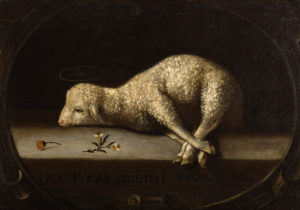On September 20, the glitterati and illuminati of the Anglican Communion gathered at my parish in Dallas, Texas, to renew our ancient order by embracing “radical vocation.” In attendance were Archbishop of Canterbury Justin Welby, symbolic head of the worldwide church (our “pope”), and Presiding Bishop Michael Curry, primate of the Episcopal Church, Anglicanism’s American branch. Also featured at the conference was a pantheon of theologians, including Stanley Hauerwas, Oliver O’Donovan, Ephriam Radner, and N.T. Wright. The gathering’s purpose was to encourage more women and men to heed the call to the priesthood. But three days of sermons, lectures, and debates did more than highlight our apostolic faith’s distinctive commitment to holy orders. They also illuminated one of the world’s largest Christian denomination’s conflicted perspective on global order.
The two featured speakers on the conference’s first day captured this perspective and the inner tension that defines it. Archbishop Welby, in full ecclesiastical vestments, delivered the homily from the pulpit at Solemn Evensong, a quintessentially Anglican high church worship service. Prof. Hauerwas, in more casual attire (although not his trademark tennis shoes), followed with a lecture from a simple podium in the nave. Both captivated their audiences, who filled the pews and delighted the eyes with a kaleidoscopic array of national and religious garb.
The speakers’ respective pilgrimages to the Anglican confession informed their remarks and shed light on their worldviews. The illegitimate son of an aristocratic, alcoholic mother, Welby overcame early adversity to attend the University of Cambridge, where he first felt the presence of Christ in prayer. He initially suppressed his godly calling to pursue a lucrative, decade-long career in the international energy industry. Despite his secular success, Welby eventually surrendered to the church of his baptism, the Church of England, and sought ordained ministry. His steady if surprising rise through the episcopal ranks to the See of Canterbury owed to his organizational leadership skills, a talent sorely needed as he seeks to heal a communion currently rent asunder. Through these troubles, he has remained the consummate churchman who sees common prayer—the crux of the moderate Elizabethan compromise that united the Anglican Church in earlier centuries—as a powerful instrument of communion.
In his homily, Welby asserted that the vocation of the church—to mean not the Church of England per se, but the one, holy, catholic, and apostolic church affirmed in the Nicene Creed—is the “transformation of the world in the Spirit.” To underscore this transformative power, he recounted a conversation with an unnamed politician who defined “extremism” as putting “faith before country,” to which Welby responded, “May we all be extremists!” Such a supplication is all the more controversial given Welby’s unique standing. As head of the established church in England, he also serves as a “Lord Spiritual” in the upper house of Parliament; as such, he straddles secular and ecclesiastical government, weighing on matters of both state and church. Nevertheless, he defends the church’s institutional independence and transnational character. Channeling the appointed Gospel passage for the service, John 12:17-36a, Welby challenged those called to ordination within the church to be “children of light,” reflecting divine illumination upon the world to better it. His doctrine resembles that of the thirteenth-century Pope Innocent III, who famously analogized spiritual authority with the sun and temporal authority with the moon, the latter clearly subordinate. Moonlight is sunlight.
In contrast, Hauerwas is a latter-day saint of the Anglican Communion, but today is one of its theological leading lights. Born in Dallas and the son of a bricklayer, he was raised a Methodist and flirted with ministry before dedicating his life to the university, first Notre Dame than Duke. He was later rewarded for his academic achievements when Time named him “America’s Best Theologian.” His migration in the last decade to the Episcopal Church appears more a matter of convenience than conviction. In his lecture, he described discovering the not-so-Anglican-sounding Church of the Holy Family in his current North Carolina college town, and, in a not-so-self-deprecating aside, commented that in the Episcopal Church “no pretension goes unused.” Despite being a self-proclaimed church theologian, he defies denominational classification, once claiming he was a “high church Mennonite,” mostly to “confuse my critics.” Hauerwas, like other provocateurs, traffics in wit and wordplay. Removed from the practical task of church-building, he luxuriates in the role of Jeremiah, a useful if unconstructive critic of spiritual and temporal authority.
Hauerwas’ remarks at the conference revolved around the concept of pastoral care and were consonant with his broader theology. He views the world as wounded, to which the church must attend but cannot heal. Organized religion provides a story, not a solution, for human suffering. As Hauerwas once wrote, “the first task of the church is to make the world the world, not to make the world more just.” This train of thought, inspired by the discredited Mennonite theologian John Howard Yoder, leads to a Christian pacifism that Hauerwas defended in his 1983 book The Peaceable Kingdom. In this work, he opposes Reinhold Niebuhr, the patron saint of this journal, and argues that in the face of aggression for which there is no ready response, the church and society at large should adopt “the grace of doing nothing.” Echoes of such pacifism could also be heard in Hauerwas’ lecture last month, in which he asserted that “a Christian community is defined by those who do not kill their children.” Although such a commitment is certainly unobjectionable, if not obvious, the fact that Hauerwas feels compelled to articulate it casts doubt on the morality of the use of force under any circumstance, a foundational belief of classic just war doctrine. If Hauerwas agrees with Welby that the church must raise “children of light,” he would keep their light under a bushel.
Reinhold Niebuhr famously engaged the “children of light” of which Welby spoke in a wartime essay of the same name, although in doing so he cites not John’s Gospel, but Luke’s: “For the children of this world are in their generation wiser than the children of light.” He defines the latter as “those who seek to bring self-interest under the discipline of a more universal law and in harmony with a more universal good,” but condemns their modern equivalents—liberal democrats and secularized idealists—as foolishly naïve in the face of the cynical children of this world, authoritarians in his day and populists in ours. “The children of light must be armed with the wisdom of the children of darkness,” Niebuhr writes, “but remain free from their malice.” This wisdom lies in knowing the power of self-interest in human society, and gives rise to his famous aphorism, first articulated in this same essay: “Man’s capacity for justice makes democracy possible, but man’s inclination to injustice makes democracy necessary.” The church plays a vital role in society as the keeper of this wisdom, rooted in scripture, but free from malice, following Christ’s example.
The Anglican Communion, like many other Mainline Protestant traditions, struggles with reconciling a declining church with an ascendant state. The “ancient order,” grounded in moral narrative, is slowly being supplanted by a new order shorn of religious content. Against this trend, both Welby and Hauerwas prevail. They differ, and Anglicanism equivocates, in their prescription. Welby advocates for an “extremist” church, confident in its transformative power; Hauerwas advocates for a pacifist church, bearing witness to nonviolence. Niebuhr’s synthesis, where an assertive but humble church that strives to transform a wounded world but is ultimately imperfect in its ministry, holds promise. The church must not shy from seeking justice in this world, while also appreciating its limits. The children of light must persist, fully knowing their illumination is refracted through the prism of sin but essential to defeating the darkness nevertheless.
—
Matt Gobush served on the National Security Council in the Clinton White House and as chair of the Episcopal Church’s Standing Commission on International Peace and Justice. He currently works in the private sector and lives in Dallas, Texas. He is a contributing editor of Providence.
Photo Credit: Archbishop of Canterbury Justin Welby serving communion at Birmingham Cathedral on March 5, 2015. By Robert Jones, via Flickr.







 Sponsor a student for Christianity & National Security 2024
Sponsor a student for Christianity & National Security 2024